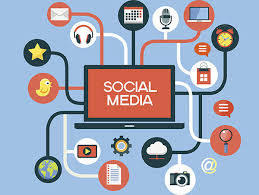
Media and Resources
What is media literacy?
Media literacy is a learning approach which helps students access, analyze, evaluate, and create messages using media in various forms.
The Alliance for a Media Literate America provides this definition:
Media literacy empowers people to be both critical thinkers and creative producers of an increasingly wide range of messages using image, language, and sound. It is the skillful application of literacy skills to media and technology messages.
The Center for Media Literacy has expanded their definition to read:
Media Literacy is a 21st century approach to education. It provides a framework to access, analyze, evaluate and create messages in a variety of forms - from print to video to the Internet. Media literacy builds an understanding of the role of media in society as well as essential skills of inquiry and self-expression necessary for citizens of a democracy.
Media literacy is based on the premise that the medium through which a message is conveyed shapes the message itself. As the information landscape continues to expand beyond traditional text-based resources to encompass a plethora of formats including digital, video, and social media, it is important to be able to evaluate and interpret the messages received, and to understand how different formats influence these messages.

